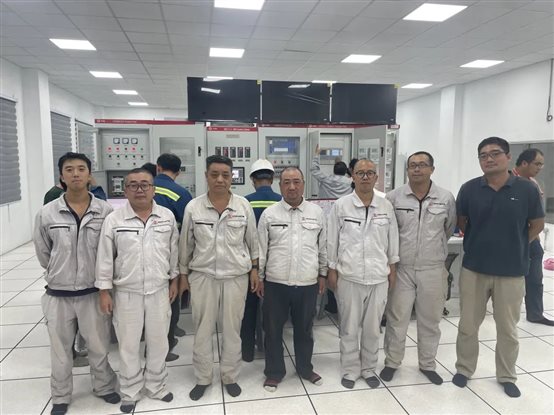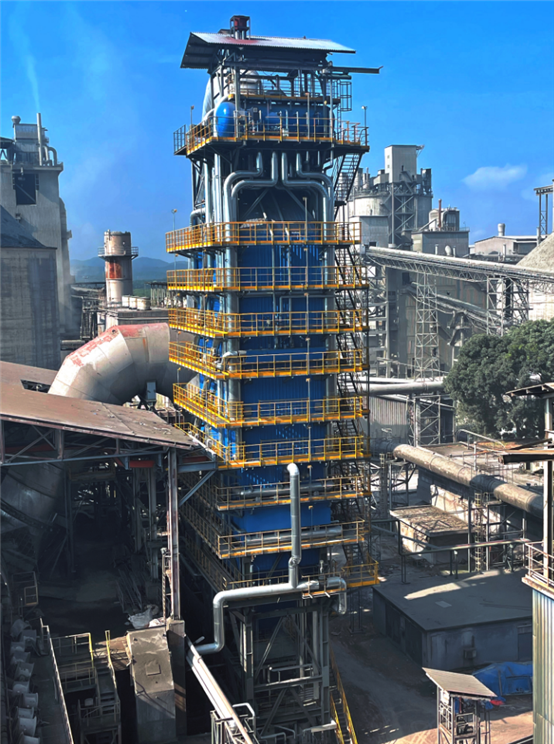Official WeChat
Malaysia CIMA Waste Heat Power Generation Project Successfully Connected to Grid
Recently, CIMA Makou Cement Plant Waste Heat Power Generation Project in Malaysia, general contracted by Sinoma Energy Conservation, was successfully connected to the grid. The project is located in Makou town, Negeri Sembilan state, Malaysia, and the scope of the project includes waste heat power generation design, equipment supply, construction and installation, as well as system commissioning, performance testing and other work.

Sinoma Energy Conservation Engineering Branch Project Department always adheres to the concept of 'project-oriented and project-first', and carefully plans the work arrangement of each stage. In the preliminary preparation stage, the project department coordinates all departments and completes the basic design and procurement work in time, so as to lay a solid foundation for the smooth progress of the project in the later stage. Malaysia is hot and rainy all year round, and it rained nine times in ten days after the project started, which seriously affected the progress of civil construction and caused the delivery time to lag behind. The project department considered the situation, quickly held a meeting to promote the work progress, updated the remaining work plan, detailed the nodes to the day, and implemented the tasks to the people, and made every effort to reverse the passive situation. All the staff at the site responded positively, worked overtime, went all out to catch up with the progress, every second to grab the schedule, and in the near future successfully connected to the grid to generate electricity.

The project's waste heat power station has an installed capacity of 16.5MW and adopts Sinoma Energy Conservation's newly developed fourth-generation cement waste heat power generation technology, which realizes a high degree of integration between the cement waste heat power generation system and the clinker line. In the AQC system, the closed cycle of waste air is adopted, and the air cooler and chimney are eliminated, which effectively improves the utilization rate of waste heat under the premise of ensuring clinker strength and cooling effect. Low-resistance and high-efficiency SP waste heat boiler is adopted at the kiln end, which improves the heat exchange effect and reduces the boiler resistance at the same time, and lowers the power consumption of the firing system.
The project not only improves the economic benefits of the enterprise, but also reduces the impact of exhaust emissions on environmental pollution, promotes the local enterprises to change to a green and low-carbon production mode, and makes positive contributions to the local realization of efficient and environmentally friendly industrial production and energy utilization.

